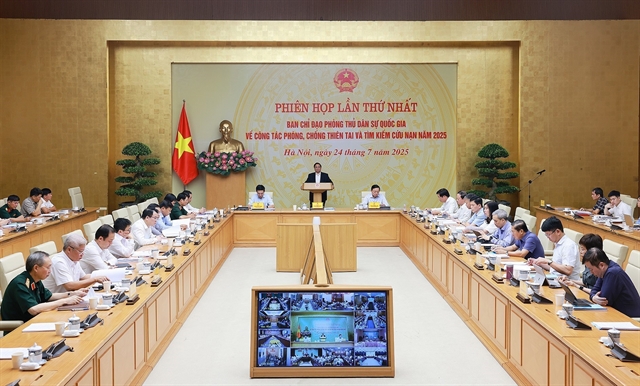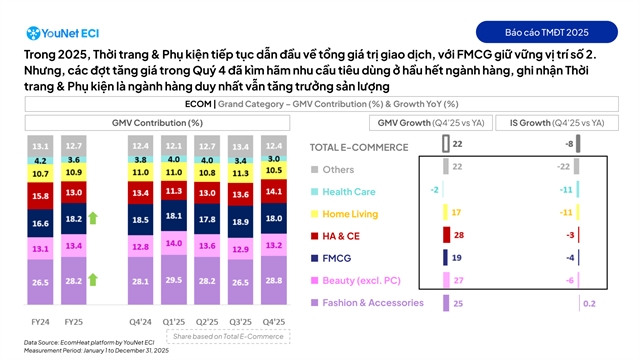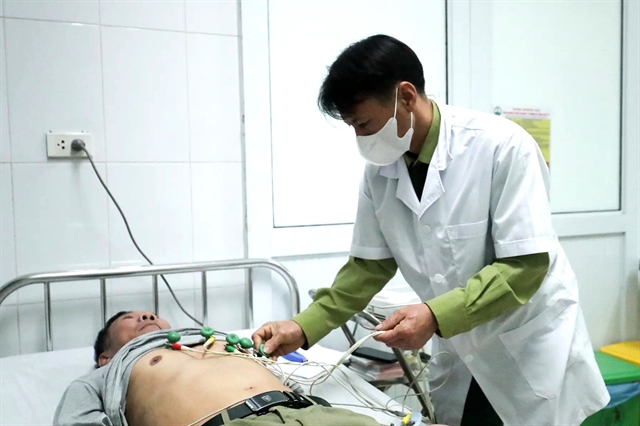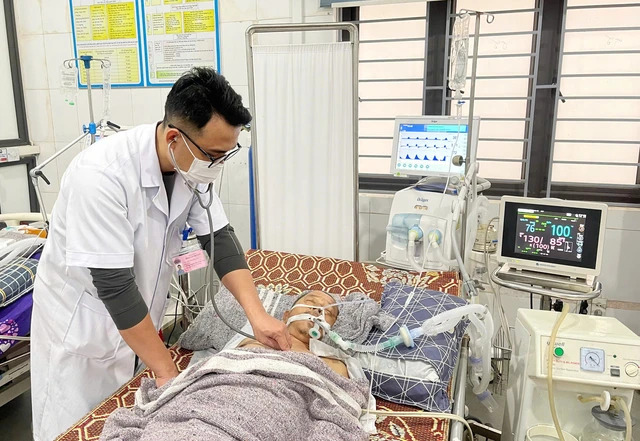 Society
Society


|
| Prime Minister Phạm Minh Chính addresses the meeting on Thursday. — VNA/VNS Photo |
HÀ NỘI — Prime Minister Phạm Minh Chính has stressed that natural disaster prevention is a matter of national defence and requires immediate, coordinated action across all levels of government.
The PM was speaking at the first meeting of the newly established National Civil Defence Steering Committee on Thursday.
The body was established under Decision 1585, enacted on July 23, through the merger of the National Committee for Disaster Prevention and Control, the National Committee for Disaster Response and Search and Rescue and the former National Civil Defence Steering Committee.
Opening the meeting, PM Chính extended his deepest condolences, on behalf of Party General Secretary Tô Lâm and other Party and State leaders, to families affected by the recent Vịnh Xanh 58 boat tragedy and those impacted by floods and storms in Nghệ An Province.
Emphasising the urgency of early warning, prompt reporting and rapid response in emergencies, the PM noted that civil defence encompasses a broad scope of responsibilities, including preparedness for war-related consequences, natural disasters, epidemics and major incidents.
He underlined that disaster response is a vital part of Việt Nam’s national defence posture, given the country's geography and exposure to multiple types of hazards such as storms, flash floods, landslides, droughts and saline intrusion.
He described Việt Nam as a country where people must "block storms in the morning and withstand scorching heat in the afternoon."
The PM cited several recent examples that demonstrate the growing volatility of climate-related events.
Typhoon Yagi in 2024 was the strongest storm to hit the country in 70 years. In June 2025, the central region experienced heavy flooding during the dry season.
He also referred to the July 19 tourist boat capsizing in Hạ Long, caused by sudden tornadoes, hail and strong winds.
Regarding Typhoon Wipha, the PM acknowledged that authorities at all levels had made proactive preparations through forecasting, early warnings and public communication. However, both the pre-storm conditions and post-storm remnants still caused major damage.
He urged delegates to review and evaluate recent disaster response efforts, identifying achievements and shortcomings in leadership, coordination and implementation.
The review should address persistent challenges and draw lessons to inform planning for the rest of 2025 and the coming years.
Delegates were also tasked with assigning and clarifying responsibilities based on the 'six clears' principle: clear personnel, clear tasks, clear timelines, clear accountability, clear authority and clear outcomes.
The PM emphasised that these standards must be applied consistently across all levels of administration.
He also called for an open discussion on the challenges of implementing disaster response under the two-tier local government model, urging delegates to share practical experiences in disaster prevention and search and rescue operations. — VNS




